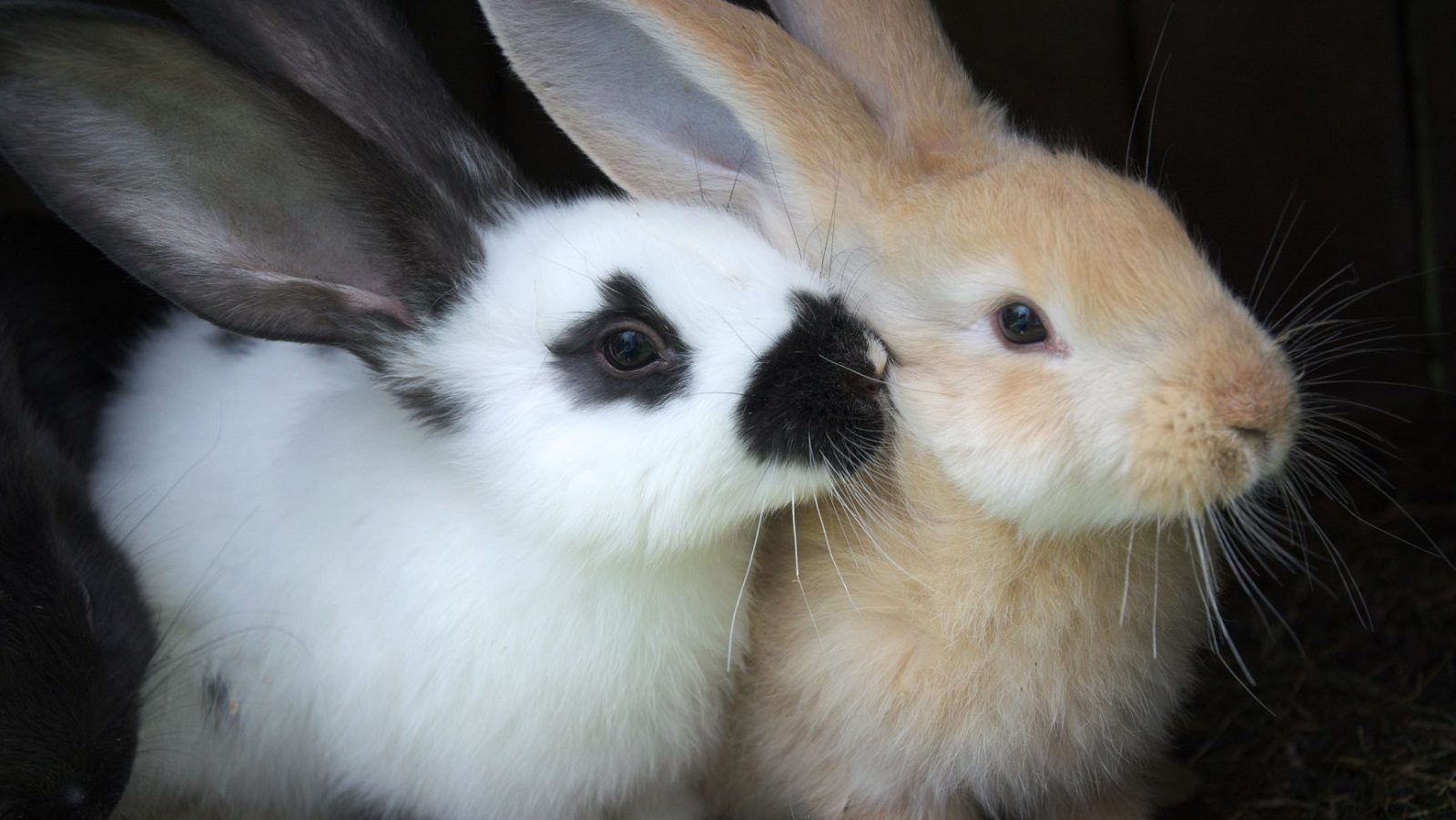Rabbits are becoming ever more popular pets, but they are also one of the most misunderstood and neglected. Not because people mean to be cruel but because these beautiful little animals have much more complex needs than many people realise.

In general, all animals have five basic welfare needs.
Let’s have a look at these needs for rabbits as we share our tips on how you can make sure your little hoppers are the happiest they can be!
Tip 1) Provide the right food and fresh water
This may sound easy, but sadly, lots of people get it wrong.
Rabbits have teeth that grow continually throughout their lives, and they’ve evolved to eat fibrous, low energy foods like grass and plants. They need to spend a long time eating and chewing to get all the nutrients they need so their teeth get a lot of wear and tear, hence the need for constant growth. When rabbits don’t get enough grass and hay their teeth can overgrow and cause painful mouth lesions and abscesses. Muesli-style food allows for selective feeding and should never be fed.
Your rabbits should have constant access to good quality hay and only have about an eggcup-sized portion of complete rabbit pellets a day. Giving them access to fresh grass and a variety of green, leafy fibrous vegetation, weeds and herbs is even better.
All animals should have constant access to fresh water. Rabbits can be given water in bowls or in drinker bottles. Always check your rabbits’ water several times a day as bowls may get tipped over or soiled and bottles can get blocked.
Tip 2) Ensure the right environment
Way too many rabbits are still kept in small hutches.
Freedom of choice and movement is essential for animal happiness. Rabbits are most active at dusk and dawn, which may not coincide with your schedule. With this in mind they should have safe access to their exercise area at all times. Hutches should be big enough for them all to stretch out fully and also to be able to stand up on their hind legs. The smallest hutch you should ever get should be 1.8m x 0.6m x 0.6m and they will need a lovely exercise area that they can access all the time too.
You can use tunnels and hideouts and add elevated areas for lounging and looking out. The world is your oyster so use your imagination to make their home as interesting as you can.

Tip 3) Allow them to express natural behaviours
Just think – What do rabbits like and need to do? Run, hop, play, explore, graze, lounge around, hide, feel safe and of course, dig!
Just because you are providing your rabbits with luxury accommodation doesn’t mean that they won’t feel the irresistible urge to dig. This may be inconvenient for you but you can give them planters full of soil to dig in or use a sunken pond full of earth to give them some great digging joy without ruining your lawn. Even if your rabbits are kept indoors they still need to dig.
Tip 4) Know their need to be with (or without) other animals
Rabbits are prey animals and they are also social animals.
This means they feel safer as well as happier when they are with other rabbits. Rabbits should never be kept on their own. Together they can groom and snuggle for warmth and have fun. The best combination is a neutered male and neutered female, but other combinations can work.
Tip 5) Protect them from pain, injury and disease
Rabbits, like lots of other animals, need protection from diseases.
Rabbits should be vaccinated against Myxomatosis and Rabbit Viral Haemorrhagic Disease. Talk to your vet about when these vaccines should be given and how often they need to be repeated.
All rabbits should also be neutered. This can help reduce aggression but it also prevents a lot of diseases such as cancer and uterine infections.



